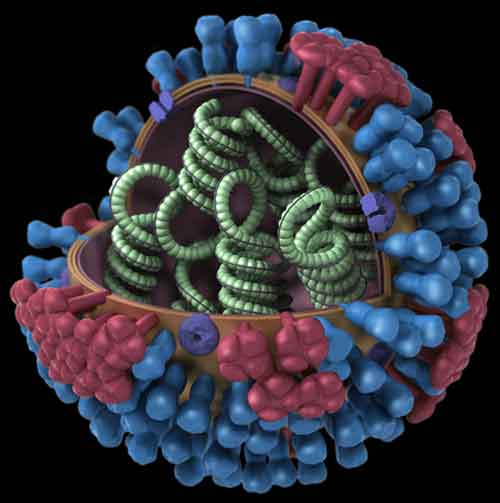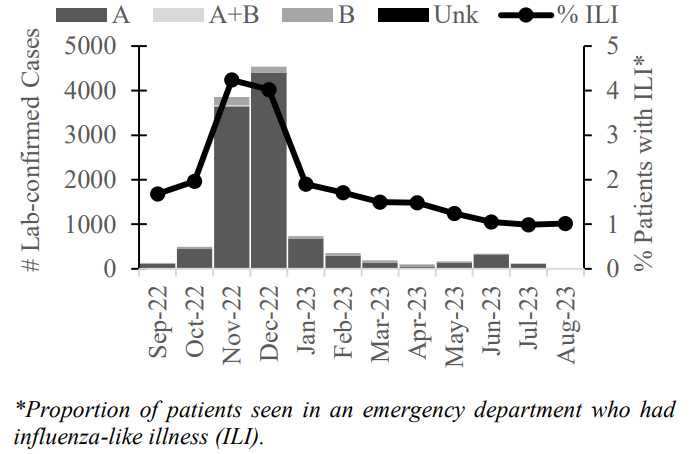 ANCHORAGE — Influenza activity in Alaska has greatly increased in recent weeks and has been confirmed in all regions of the state, according to Alaska Division of Public Health Epidemiologists.
ANCHORAGE — Influenza activity in Alaska has greatly increased in recent weeks and has been confirmed in all regions of the state, according to Alaska Division of Public Health Epidemiologists.
“Alaska is already seeing increased flu activity, which in past years usually occurs later in the season,” said Dr. Michael Cooper, program manager for the Infectious Disease program. Since mid-October, surveillance indicators have seen steadily increasing numbers with 345 cases of laboratory-confirmed influenza in October and 405 cases in November (as of Nov. 20, 2014). Many people sick with the flu do not seek medical care, and there is no reliable way of estimating how many cases there are in Alaska. Those who do end up with positive results, however, get counted by the State, and these numbers have been increasing recently. “This is by far the highest number of confirmed flu cases we’ve seen in November in the past four years,” Cooper explained.
The majority of positive test results come from people in larger urban population centers, but confirmed cases have been reported statewide. While influenza activity varies from year to year and is unpredictable, Alaska generally sees an increase in cases in late November or early December, often peaking in January or February.
Although difficult to predict, Cooper expects to see continued increases in influenza activity going into the holiday season. “The holidays present an opportunity for a greater spread of respiratory illnesses, like influenza, with increased travel and social gatherings,” Cooper added.
People who have not already received an influenza vaccination this season should consider doing so now. Vaccination is recommended for everyone over six months old, but is particularly important for those at higher risk of severe influenza, like children under age 5, pregnant women, adults over age 65, and people with certain underlying medical conditions like asthma or obesity. Other preventative measures include washing your hands, covering coughs with your sleeve or tissue, staying home when sick and practicing good general hygiene.
For more information on flu in Alaska, visit https://flu.alaska.gov/id/influenza/fluinfo.htm.




